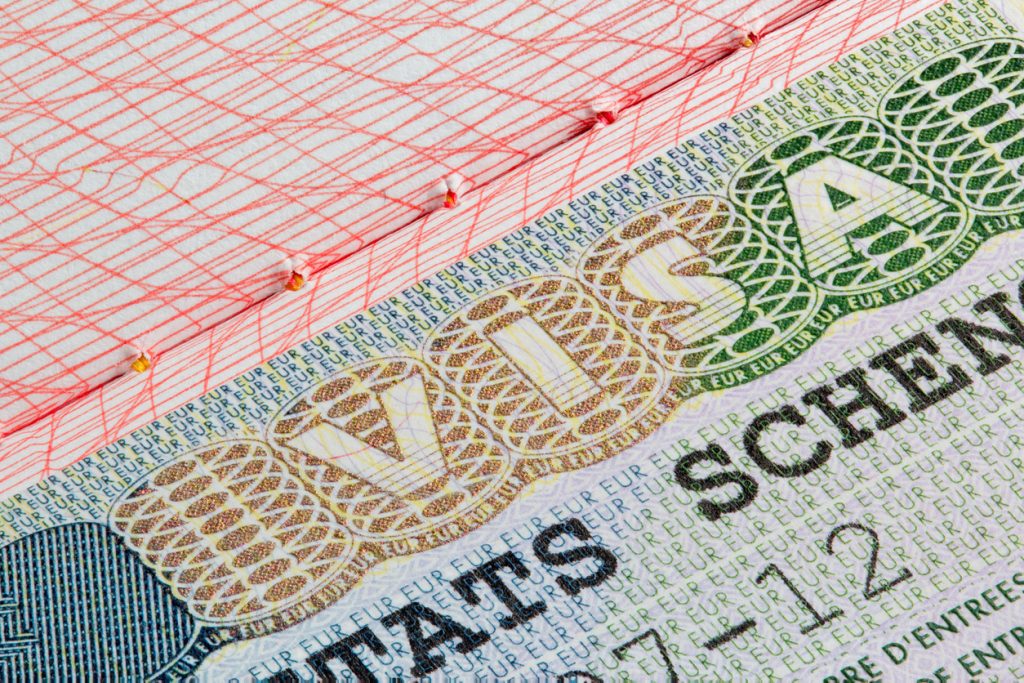On September 19, 2025, the Trump administration issued a presidential proclamation imposing new restrictions on H-1B visa holders seeking to enter the United States. Subsequently, additional clarification was provided by the U.S. Citizenship and Immigration Services (USCIS) and Customs and Border Protection (CBP) on September 20, followed by a Department of State (DOS) H-1B FAQ on September 21. These changes reflect this administration’s stated goal to prevent misuses of the H-1B visa program.
What’s Changing?
Under the proclamation, and based on the USCIS, CBP, and DOS clarifications, effective 12:01 a.m. EDT on September 21, 2025, and continuing through September 21, 2026 (unless extended), any new H-1B petition filed on or after the effective time must be accompanied by a $100,000 onetime up-front payment.
This requirement applies to all new H-1B petition filings, including the fiscal year (FY) 2027 H-1B lottery, but doesn’t affect petitions filed or approved before September 21, 2025; previously issued H-1B visas (if a visa is required); or “H-1B renewals” in the United States. The federal government is expected to make a recommendation in spring 2026 to extend or renew the $100,000 payment requirement beyond one year.
The USCIS has clarified that H-1B extensions of stay aren’t subject to the new restrictions. There are, however, remaining uncertainties that are causing confusion, such as whether the following types of cases may be subject to the new fee:
- H-1B change-of-employer or amendment petitions.
- H-1B change-of-status petitions for individuals who may already be present in the United States but in another visa status.
- Individuals inside the United States with a petition filed on or after September 21 and who subsequently depart the country to obtain a new visa stamp.
Key Takeaways for Employers
- H-1B visas filed or approved before September 21, and future H-1B renewals, shouldn’t be affected by the new payment.
- More guidance and new rules are expected regarding “H-1B renewals” and other terms reflected in the proclamation.
- Additional changes to the H-1B are expected, including a wage level-based lottery system, increased enforcement on wage and hour violations, and more on-site visits to assess whether employers and their H-1B employees are complying with the terms and conditions of their visas.
The USCIS and DOS have been directed to implement the new payment requirement for employers filing new H-1B petitions for workers abroad, and companies should prepare by including the $100,000 fee in talent management budgets or pursuing other visa sponsorship options. Employers and talent management teams should also be cautious about the H-1B cap lottery and candidates they would include in the lottery for FY 2027.
Importantly, the proclamation doesn’t prevent current H-1B visa holders with valid visas from traveling internationally. However, employers should make sure employees proactively communicate about upcoming travels to assess any possible issues and consider restricting nonessential international travel for H-1B workers and until further clarification is given.
Future Rules and Guidance Expected
The proclamation mentions that certain exceptions may be available for individuals or industries where hiring is deemed to be in the national interest and not a threat to U.S. security or welfare, though details remain unclear. This could potentially carve out fields that overlap with national interest waiver standards, but employers shouldn’t rely on this until further agency guidance is issued.
The proclamation also directs agencies to initiate new rulemaking expected to significantly raise prevailing wage requirements and prioritize admission of high-skilled, high-paid individuals. For example, a recent proposed regulation seeks to change the H-1B cap lottery process to give greater odds of selection to beneficiaries with the highest wages according to the Department of Labor’s (DOL) four-level prevailing wage system.
Proposed changes must follow the federal rulemaking process, including prescribed periods for notice and comment and any agency revisions, before they’re adopted. It’s difficult to predict when new rules might be effective.
DOL Wage Enforcement Initiative: Project Firewall
On September 22, 2025, the DOL announced Project Firewall, a new initiative aimed at investigating employers that use the H-1B program. Potential consequences for violations include repayment of back wages to workers; civil monetary penalties; possible debarment from sponsoring H-1B employees in the future; and, in more extreme situations, potential criminal referrals.
To prepare for an expected uptick in investigations and enforcement, as we’ve started to see this year with I-9 compliance, employers should audit their current visa-sponsored workforce by reviewing public access files (PAFs), Permanent Labor Certification (PERM) Program audit files, wages, worksites, and job duties.
Additionally, those responsible for managing H-1B programs must be trained on compliance obligations and risks, and companies should establish a clear plan for responding to government inquiries, including designating experienced immigration counsel. Finally, internal communications should emphasize the company’s commitment to compliance and nondiscrimination.
Samantha Wolfe is a partner with Holland & Hart in Denver, Colorado. She can be reached at 303-295-8479 or sdwolfe@hollandhart.com.




